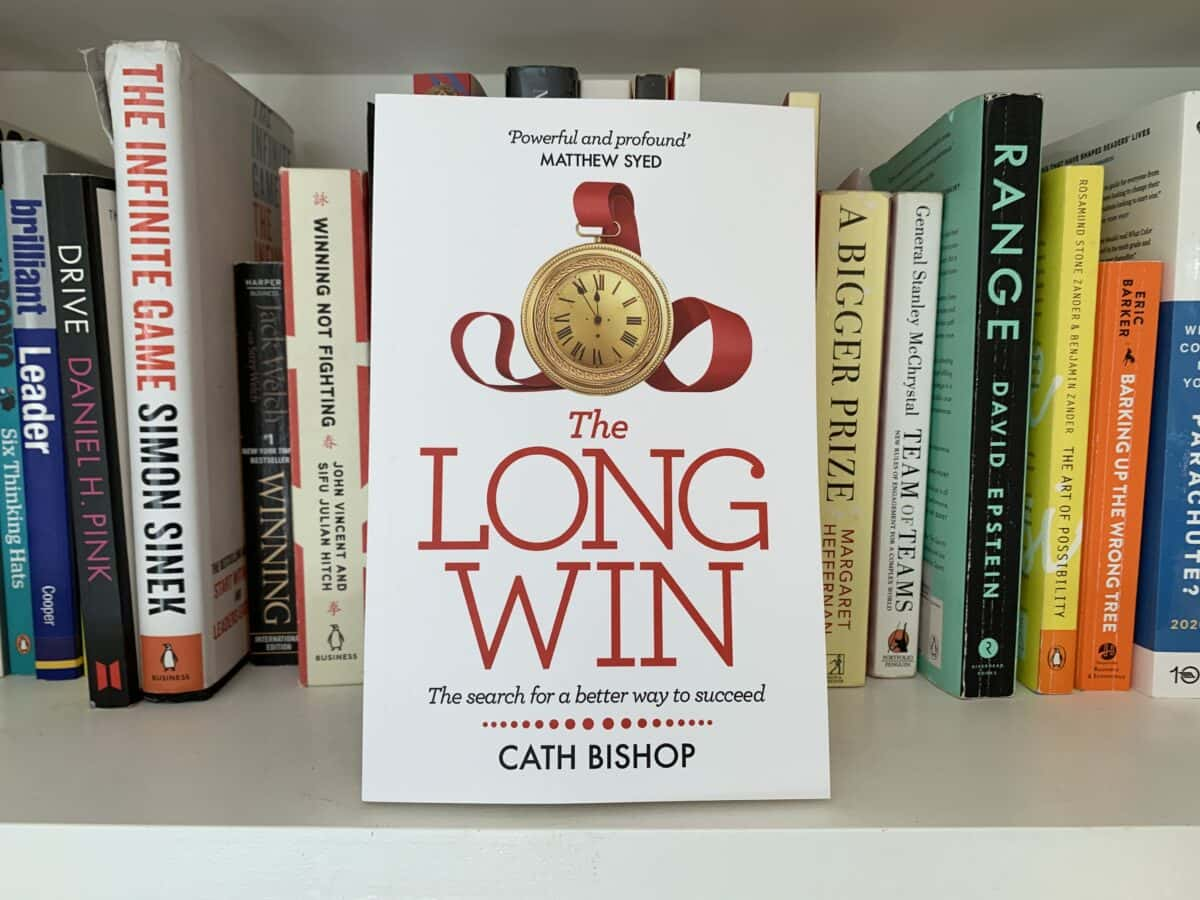
10 Sep 2021
Cath Bishop redefines success in The Long Win
With the Tokyo 2020 Paralympics and Olympics over, many athletes and fans are reflecting on the nature of winning, losing and participation. These are all themes former British Olympic rower Dr. Cath Bishop tackles in her book, The Long Win.
World Rowing spoke with Bishop about the book, why the traditional thinking around winning isn’t – and shouldn’t be – everything. Also athlete mental health and the importance of fun even in elite sport.
The winning trap
“We have become accustomed to thinking that it is a strong, heroic thing that leaders win, that impressive, more powerful people win,” says Bishop of the prominence society gives to winning. “We have a sense that winning is the most important thing.”
From the perspective of these so called ‘winners’, “part or our brains likes to feel that we have gained something,” she explains. “But the win is short lived and we find ourselves chasing it endlessly.”
“We are afraid of not getting that high, not winning. We are trapped in a threatening, binary world. It plays to a negative side of our emotions, rather than a liberating exploration of what’s possible.”
“Fear is effective in the short term, in getting short term results,” continues Bishop. “It is extremely exhausting and not very enjoyable. It is a trap. It is a limiting strategy because we are all made to feel powerless. Instead of how we can take control and be more powerful to do something. Those in power use fear as a way of getting compliance, but it is disempowering.”

Win, lose, learn
Fortunately, Bishop offers an alternative: “Start by saying ‘let’s look at what is possible.’”
“Let’s not assume that winning or losing are the only options,” suggests Bishop, whose elite rowing career in the women’s pairs went from 7th place at the Atlanta 1996 Olympics to 9th at Sydney 2000 to a silver medal at Athens 2004. The change from a focus on results to one where she felt empowered to enjoy the process of training was a key transformation in both her relationship with sport and actually led to even greater success.
“Think about what else we are learning or gaining regardless of the result,” she says of shifting the narrative from win-lose to one focused on learning and growth – something she later witnessed in the real world throughout her post-rowing career as a British diplomat in war-torn regions like Iraq and the Balkans.
“It is a question of the finite gains of winning and losing or the infinite gain of creating new relationships.”
Striking a balance
Key to Bishop’s philosophy – what she calls ‘long win’ thinking – is the idea of balance. “People can become defined by their jobs,” she says, pointing to doctors or those in the military as obvious examples, but elite athletes are no different.
“Real value comes from who we are and exploring ourselves in different ways,” continues Bishop. “We have more interests than one thing. Having different aspects of our lives gives us relief perspective when we step away from something so intense like elite sport.
“Once we put our worth in the outcome of a race, it is short lived. It can also increase mental health issues in sport and beyond it.”
Mental health
“We tend to think of sport up to the podium moment,” says Bishop. “We don’t think about what comes after. It is why we see people who win feeling disappointed and even depressed. But this doesn’t need to happen.
“There is nothing wrong with wanting to pursue winning or wanting to be the best, but it has to sit in a framework bigger than the outcome. Having the perspective of who we are and what we are doing in a broader sense gives deeper meaning.”
As for what Bishop carries with her from her own rowing experience, she is unequivocal. “I’m not going to carry my medal with me all the time, but I will carry the meaningful lessons: values, managing pressure, working in a team, how to collaborate, how to look after myself, nutrition, good recovers. All of these are useful in life after elite sport.”
Redefining success
“If we think about learning itself as part of our definition of success, we feel freer to try things and find out what works well and what works less well,” says Bishop, who suggests athletes and everyone else, adopt a mastery or ‘constant learning mindset’ as she calls it.
“The negative pressure of having to win is not very enjoyable, whereas exploring what is possible in a race and learning from it gives energy. Learning is part of intrinsic motivation.”
“We have a natural urge to learn,” she says. “As children, we don’t stop because we fall over a lot. Later experiences at school or work can constrain that, but the way we coach can draw out the learning rather than seeing where an athlete stands in the ranking. We can have rankings, but focus on the learning. Saying ‘you are the best and you are the worst’ is not helpful, while saying ‘this is where we are and here is what we are going to learn next’ keeps people motivated.
As for what rowers, coaches and clubs can do to redefine success, Bishop points to a simple framework. “The 3 Cs can help create this change,” she says:
- Clarity – Establish the broader success criteria for your experience. Think ‘what am I going to learn, what is my story, what is my experience going to be. Wanting to win is fine, but think about the how and why as well as results.
- Constant learning – Think about what is going well and what can be done differently. You can’t change everything, so focus on a few. If you can do that regardless of results, then you get into a constant learning mindset. We have to do it when we win and when we lose.
- Connection – Building connections and relationships with others gives the opportunity to work together and succeed in ways not possible on your own.
“Research on mental health shows that making sense of things is really critical to moving on,” she explains. “Rather than judging where we have come.”

